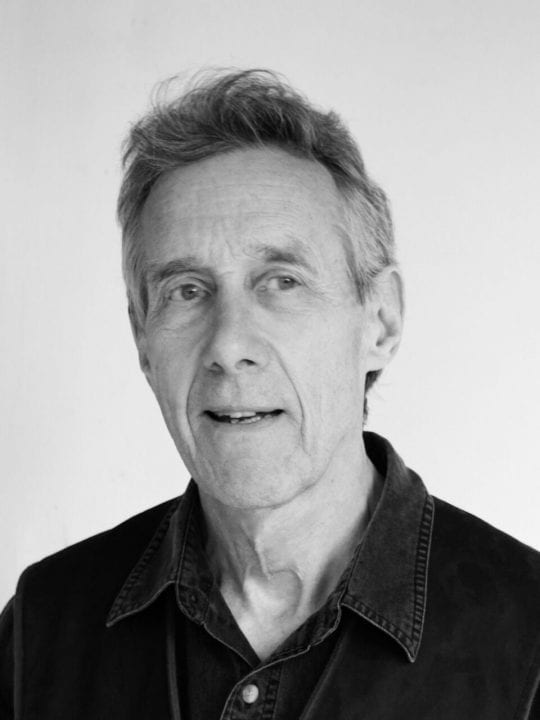Richard Kenney, a Pacific Northwest poet, is known for his formally ambitious poetry, which employs intricate and playful verse to comment on science, politics, love, and language. His latest book of poems, Terminator (2019), is his first in ten years.
Kenney is the Grace M. Pollock Professor of Creative Writing at the University of Washington, where he teaches in the Undergraduate and the MFA programs. In his time at the university, he has founded and directed English programs in Rome, Italy and Friday Harbor, WA, at the UW marine laboratories. His poems—armed with the science of verse—dive into evolutionary and cognitive sciences, the origin of languages, magic, riddles, jokes, and charms. He is celebrated for his adept rhymes, his wit, and his profound commitment to craft.
Born in 1948 in Glens Falls, New York, Kenney earned a BA from Dartmouth College. His first collection of poetry, The Evolution of the Flightless Bird (1984), was awarded the Yale Younger Poets Prize. The book was heralded for its formal ambitiousness, including its extended sonnet sequence. James Merrill, in the book’s forward, wrote that “with its agreeable eddies of temperament, reflections that braid and shatter only to recompose downstream, this book moves like a river in a country of ponds.”
Orrery (1985), Kenney’s sophomore collection, derived its title from a curious eighteenth-century device used to display the movements of the solar system and features sonnets devoted to physics, memory, and time, as well as a sequence set on an apple cider farm in present-day Vermont. Two more collections followed, The Invention of the Zero (1993), which composed poems with strands of language from nuclear physics, paleontology, geology, and astronomy, and The One-Strand River (2008). Todd Marshall for the Iowa Review, wrote that The One-Strand River “feels and reads like a book of poems—tradition and the sense of a life lived in our world are touchstone throughout. And yet, frequently, the diction, the syntactical gymnastics, the sheer original limberness with language demand that we tune in, pay attention.”
Terminator: Poems 2008-2018 (October 2019), Kenney’s forthcoming collection from Knopf, takes the terminator—the line, perpendicular to the equator, that divides night from day—as the organizing concept of its poems.
Kenney’s work has appeared in Poetry, The New Yorker, Atlantic Monthly, Poetry Northwest, and The American Scholar. He has received numerous awards, including Yale Series of Younger Poets Prize for The Evolution of the Flightless Bird, the John Simon Guggenheim Memorial Foundation fellowship, the John D. and Catherine T. MacArthur Foundation fellowship, the Lannan Literary Award, and the Bogliasco Foundation fellowship.
Kenney lives with his family in Port Townsend, Washington.
